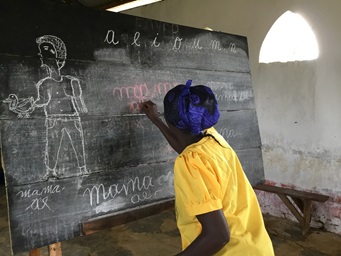Fifty years is a long time. I realized that on June 9, 2013, when the Mississippi Annual Conference recognized 28 ministers for an act they performed here in 1963. These ministers, then young, issued a statement called “Born of Conviction,” written in response to the violent riots stirred by the admission of African-American James Meredith to the University of Mississippi in l962.
I was one of the four writers of the statement and among the 28 who signed it. When I read it today, it is difficult to imagine that it was such a bombshell. That itself is witness to the dramatic difference between where we were then and where we are now.
It also witnesses to the fact that it is too easy to forget. I had long since forgotten about the issues surrounding that chapter of my life. Then I received a call from the conference Commission on Religion and Race and learned that the 28 would be honored. Awakening my memory more was the fact that Myrlie Evers, wife of slain civil rights activist Medgar Evers, would present the award. Evers was one of many killed during those early years of the ‘60s in Mississippi.
That recognition has made me reflect more deeply on our culture and what the Rev. Martin Luther King Jr. called the “arc of the moral universe.” In a speech after completing the march from Selma to Montgomery, Ala., in l965, he asked, “How long will prejudice blind the visions of men, darken their understanding and drive bright-eyed wisdom from her sacred throne?” He answered in equal eloquence: “How long? Not long, because the arc the moral universe is long, but it bends toward justice.”
read more
Interpreter Magazine invited six who were involved in the struggle for U.S. civil rights to share their reflections.
The arc of the moral universe is so long we are not always aware that it is bending toward justice. I came to Memphis as senior minister of Christ United Methodist Church in l982. Memphis is where King went to his death supporting striking sanitation workers. In l991, our city elected Willie Herenton as our first African-American mayor. It was a close election. Rumors began to fly about voting patterns and auditing the results. Some of us ministers felt the city might explode. We wrote an open letter, eight ministers signed it, and we paid for a full-page ad in the daily newspaper. Some of us believed with Mayor Herenton that this diverted public demonstrations that could have resulted in violence. We now have our second African-American mayor. The arc is long, but it bends toward justice.
I left Memphis in 1994 and returned in 2004. Poverty and race are still our most critical issues. I believe public education is the civil rights issue of the 21st century. A person’s ZIP code should not determine his or her opportunity for a good education. Sixty-nine of Tennessee's 85 worse failing schools are in Memphis.
The arc of justice is bending in a visible way. Four years ago, Christ United Methodist established Cornerstone Prep, an explicitly Christian school. With focused attention to providing education for the underserved children of our city, we located in one of the neighborhoods where many of these underserved children live. The school has had amazing results.
The educational measurements exceeded national norms, and the school was asked to take responsibility for the first three grades of one of the most failing schools of our city. To do so, we had to cease being a private Christian school and become a charter school. We accepted the challenge.
In September, we will be responsible for pre-K to fifth grades of this public school. Whereas we had 60 children in our private school, we will have 625 in this charter school.
This movement on the part of the congregation of Christ United Methodist Church gives me great hope. Memphis is a troubled city. Race and poverty flavor every relationship and every corporate decision. However, I do not know another city that has more bold and creative expressions of mission and ministry. The eyes of the nation are on us, especially as it relates to educational reform.
I believe it would be just like God to witness to the nation that if it can happen in Memphis, it could happen anywhere. Some of the churches of our city are at the forefront of bending the arc of justice, and I am trusting that the arc will bend more dramatically during the next 50 years than it has in the past.
Now retired, the Rev. Maxie Dunnam is pastor emeritus of Christ United Methodist Church in Memphis. He began his pastoral service in Mississippi, served 10 years with The Upper Room and 10 years as president of Asbury Theological Seminary.
Like what you're reading? Support the ministry of UM News! Your support ensures the latest denominational news, dynamic stories and informative articles will continue to connect our global community. Make a tax-deductible donation at ResourceUMC.org/GiveUMCom.




